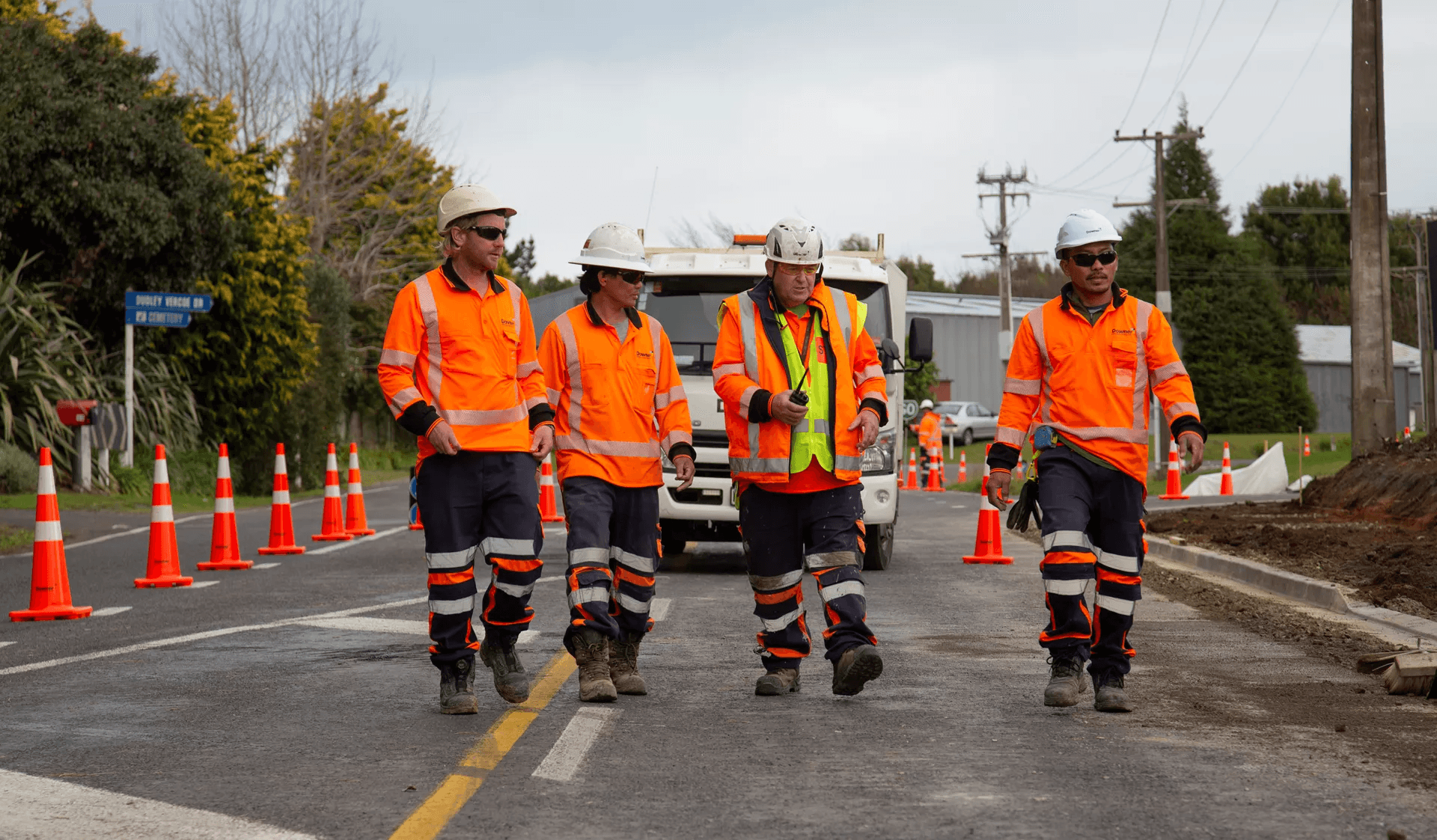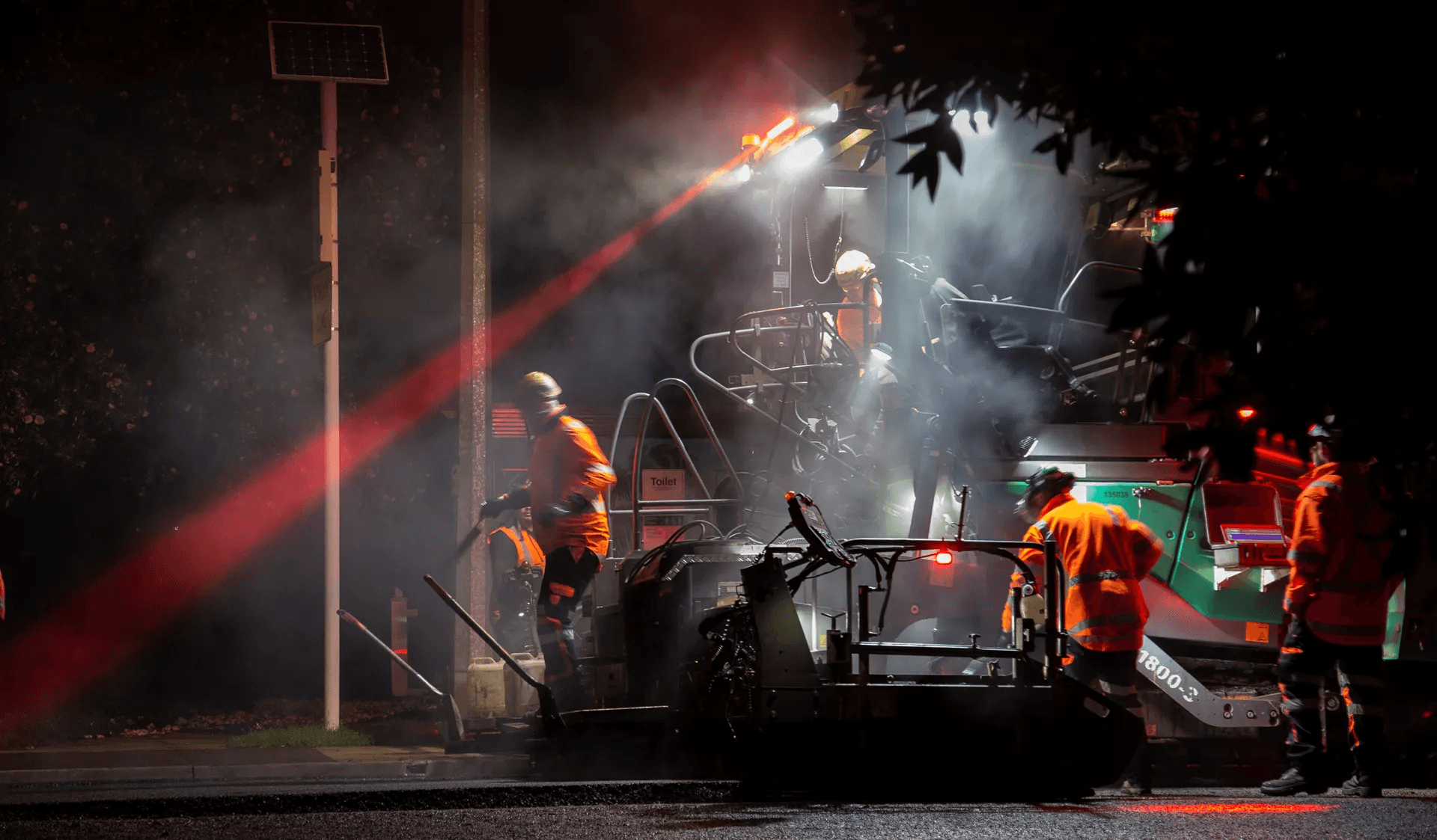Good!
We are proud to present work & people productive in the community that inspires us, paves a way toward thriving & aspiration for change.
This, is what good looks like.
Stop go gives way!
14 December 2023
Stop/Go men and women might soon be history in Whanganui as the District Council opts to manage traffic differently during infrastructure repairs and upgrades, offering greater efficiency, productivity and worker safety.
Driven by CEO David Langford, the Council has opted for road closures and the use of portable traffic lights rather than the more traditional Stop/Go approach to traffic management – involving lollipop men and women. “Traffic management can account for a significant proportion of a project’s cost - anything up to 15 percent of jobs,” David says. ”That is a lot of money across New Zealand. “
The prevalence of Stop/Go was quite a shock to him when he arrived in New Zealand from the United Kingdom ten years ago. There its use had been minimised in favour of other forms of traffic management, rather than being the default approach.
Once here he worked initially with Downer’s, before becoming Infrastructure Services Manager for the New Plymouth District Council. It was there he started trialling closures and building a case for preferring them over Stop/Go. Then eighteen months ago he took on the Whanganui role and ramped up his advocacy.
“I started my career working in construction contracting, so my roots are in traffic management and roadworks,” he says now.
“It makes sense to prioritise traffic management approaches which are safer, more cost-effective and more productive.”
Stop/Go isn’t very particularly safe, he says, with workers confined to cramped worksites which allow traffic to pass close by. Sometimes at speed. And because those workers on the end of the lollipops aren’t actively building anything as part of the project, it’s an inefficient use of labour in a sector already struggling with shortages. That’s only going to get worse, with an ageing workforce and a wave of retirements ahead
“Continuing to create poor quality, unfulfilling work also carries a psychological risk. Stop/Go work can be boring, and not particularly engaging or rewarding. So an end to Stop/Go and the chance to retrain and upskill our people to move into more interesting, value-adding work is a great opportunity we shouldn’t miss.”
Asked about community tolerance for closures and detours David rates it pretty high.
“If we are seen to be hitting a worksite hard, getting on with the work quickly and efficiently, then we rarely get complaints about road closures. As more people get the message about the end of Stop/Go increasing the chances of workers moving onto other more-productive roles on Council projects it’s not hard to sell the benefits.”
Most of his advocacy has been with contractors – and they’ve been a receptive audience.
Downer Whanganui Alliance Manager Dave Nicholls says the collaborative partnership the two agencies bring to their maintenance contract is a good fit with the way he likes to work. And the benefits of a change in traffic management practice are almost instant.
“If you take two or three people out of the equation at a particular site –with those staff requiring three days investment in training them – there’s an obvious financial benefit not to mention the safety gain,” Dave says.
And he notes that productivity gains come not only from getting former Stop/Go lollipop workers on the tools. Others onsite no longer feel the need to look over their shoulder to make sure that traffic management is effective.
“And taking traffic out of the worksite has obvious safety benefits – there’s just no opportunity for vehicles to get it wrong. “
Downer’s contract with WDC sees them paid on the basis of the time worked. So efficiency gains through road closures sees them able to undertake more work. And that of course provides more opportunities for traffic management staff who might have started out without skills or experience. It’s often a gateway job, he notes, which can gets pretty boring pretty quickly.
Dave – and Downer – feel strongly enough to have produced a White Paper on the issue.
Click to download white paper
Meanwhile, at home in Whanganui “we’ve probably had more road closures in the last eight-12 months than in the previous five years,” he says. “A number of contractors are using it.”
David Langford has also promoted the concept to a broader audience through Civil Contractors NZ and work with councils - whose approval is needed for road closures.
He’s ambitious not only for this project to succeed but for other government clients to step up and show greater leadership in procurement.
The most effective levers are from his leadership toolkit - engaging, coaching and growing people and using words like purpose and vision rather than the management dialect of contracts and clauses.
“If you add it all up - roading, property, pipes and so on - local and central government are a huge client for the contracting sector. I’m from the sector. I know how it works, and I know what levers to use to influence outcomes.”
“This is the first step in developing a supply chain leadership ethos.”
“Prioritising the safety of our people over keeping traffic moving is part of our values-based approach to partnering with our contractors.”



